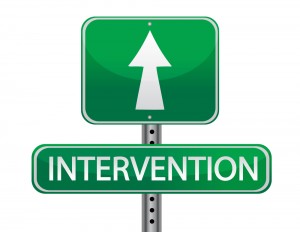
This report provides everything that is needed for people working in mental health services to make a business case for investing in early and community-based interventions. This includes, commissioners, practitioners, local authorities, policy-makers, providers, and social care. As part of this document, the authors have provided the evidence for the cost-effectiveness of a range of different interventions which focus on recovery, and have found that they are good value for money because they can prevent or slow down relapse, “reducing the need for the most expensive care.” The 15 interventions, for schizophrenia and psychosis,
that they have looked at include:
- Early detection and intervention services
- Family therapy
- Cognitive behavioural therapy
- Supported housing
- Physical health promotion
- Criminal justice liaison
For each intervention, the authors have provided the context, described the intervention, summarised the effectiveness and cost-effectiveness evidence, explained the implications for policy and practice, and finished with a brief conclusion, together with the author’s contact details, should more information be required.
Cost-effectiveness
The report gives a breakdown of the expenditure on psychosis in 2012/13, so that budget-holders can see, not only the emotional burden to the patient and their carers, but also the financial burden when investment is not made in relapse prevention and delay. Despite the evidence demonstrating the value of early intervention, “Rethink Mental Illness has found that 50% of services providing early intervention for psychosis have experienced budget cuts,” some by as much as 20%. That is why this evidence is so important, because it demonstrates the value of investing in these services in terms of the health economy and the experience and wellbeing of the patient and their carers.

Some interventions still need to be assessed to “confirm their effectiveness and cost-effectiveness for local commission groups”
Evidence gaps
As well as highlighting the evidence, the authors also point out that while some of the evidence is strong for many of the interventions, some still need to be assessed to “confirm their effectiveness and cost-effectiveness for local commission groups,” particularly those whose evidence comes from overseas research. Supporting the decisions of young people to continue with or leave education is another area where more evidence on the effectiveness of interventions is needed. The age for education (adolescence and young adult) is also the same time when young people might have their first psychotic experience. It is vital that this is acknowledged so that support is provided to them and their education is not disrupted.
Commentary
This is a very clearly set out document, well-referenced, and written in a format, which should be useful to mental health service providers and their providers. The authors recommend that “local and regional commissioning and pathway development should draw on this evidence,” which not only highlights what works, but also where there are gaps in the evidence. Teams involved the delivery of mental health services need to work with commissioners, and look at these 15 interventions, identifying which ones they already provide and discuss how they can use the material in this report to support a business case to ensure further investment in the service. Once you have looked at existing services, you could examine the other services that you might provide and decide whether or not they would benefit your population, and if yes, use the evidence to write a justification for more finance to develop new services.
Link
Investing in recovery: making the business case for effective interventions for people with schizophrenia and psychosis (PDF)
Rethink Mental Illness, The London School of Economics and Political Science, Centre for Mental Health, Department of Health
April 2014




Strong business case exists for investing in early and community-based interventions for mental health http://t.co/rZ5qFdcd5v via @sharethis
This latest report by Rethink et al makes interesting reading. http://t.co/S6DzsIXfYL
Investing in recovery: making the business case for schizophrenia & psychosis treatment New from @Rethink_ http://t.co/eoE0qbOUJM
Investing in recovery: making the business case for effective interventions for people with… http://t.co/e7bShxY4Xv